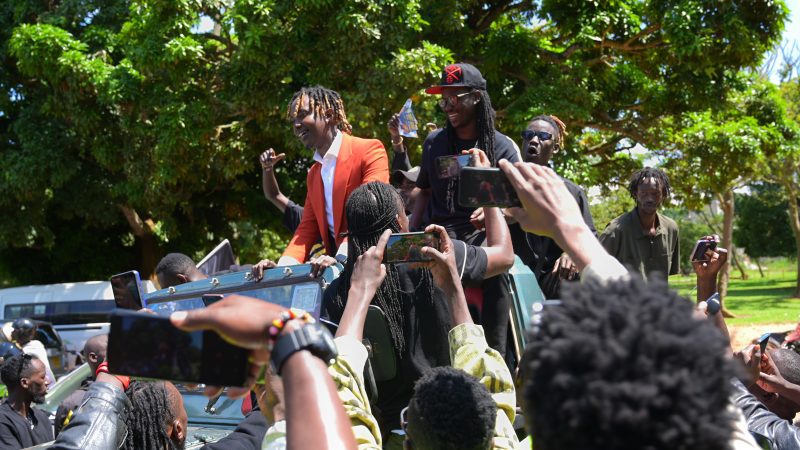By: Andrew Mwenda
Last week, the NRM narrowly won the elections for women MP in Hoima district. According to results, NRM’s Harriet Businge got 33,000 votes (54%) against FDC’s Asinansi Nyakato with 29,000 votes (46%).
This is a major setback for NRM, which has historically won Hoima with huge margins. In 2006, the FDC candidate for Women MP in Hoima got only 15% of the votes the NRM candidate got, in 2011 only 10% and in 2016 25%. In this by election, the FDC candidate got 86% of the votes the NRM candidate got.
Yet before the opposition can celebrate, they should first look at voter turnout. Only 62,000 (43%) out of 144,000 registered voters showed up. One can say by-elections have low turnout.
Yet the opposition deployed a large number of its best and most renowned politicians and activists in the district for weeks. Even the popular Kyadondo East MP, Robert Kyagulanyi aka Bobi Wine, was there. This should have bolstered voter enthusiasm but it didn’t. Why?
While NRM’s political fortunes are declining, the opposition is not inspiring much confidence. The growth in the opposition’s is far below the growth and spread of disaffection with NRM and President Yoweri Museveni. The radical extremism of the two most popular cults of the opposition – Defiance and its bastard child, People Power – has led to levels of intolerance of divergent views that most Ugandans have decided to keep away from electoral politics.
NRM continues to win elections in spite of declining support. The opposition claims this is because NRM steals their votes but fails to explain why they won Kyadondo East, Bugiri and Arua. NRM wins because of low voter turnout. In this by election the NRM candidate’s got only 23% of registered voters, 77% didn’t vote her.
Uganda’s opposition is deluded. They believe they occupy such a superior moral ground, that they are so awesome and cool, their position is so self-evidently righteous; so they do not need to win over people. They believe everyone should support them as of right because they are “liberators.” They believe, and I think correctly, that most Ugandans are frustrated with Museveni and his NRM. However, they mistake this to mean most Ugandans love them.
The fact that most people are frustrated with Museveni does not mean they would automatically support anyone who opposes him. The fact that a given woman is angry with her abusive husband does not necessarily mean she wants to quit her marriage. Even if she quit, it does not mean she is necessarily willing to marry the next suitor who comes telling her love stories.
Let us assume, just for argument’s sake, that NRM stole votes in Hoima. How does one explain 82,000 (57%) of registered voters keeping away? Is the opposition saying NRM blocked these people from the polling stations or are they ghost voters? The reason is simple: the opposition in Uganda is consumed by its own misguided sense of moral righteousness and its deluded sense of destiny that is has forgotten the interests of the people in whose name it claims to fight. This is because the opposition in Uganda is driven only by the desire for power and nothing more.
The opposition in Uganda believes that power is everything. They believe one does not need better policies backed by the appropriate social forces – only a good heart. That once in power the rest will work out with “iron necessity” to a desirable end. Yet it is difficult to rally people whose actual interests you do not understand. For then, you cannot organize them around what they want (bottom-up). Instead you promise what you think they want (top-down welfare/charity) This is the reason the opposition has no plan to address the real challenges of Uganda’s economy: to create better jobs and opportunities for trade etc.
Consequently, the opposition has pitched its message on dolling out more welfare. Where Museveni has offered free education and free health, the opposition promises to make it better i.e. “we want to be a better version of Museveni”. Bobi Wine went even further when asked about his policy proposals. He said he intends to implement NRM’s Ten Point Program because Museveni has been poor at doing exactly that. This hogwash can win over the angriest sections of the population and nothing more.
For the NRM, its electoral performance is a tragedy not of poor performance but of contradiction. Museveni has actually been a very successful president by both historical and contemporary records. He has stabilized the political dispensation in a country that had once been plagued by military coups and civil wars, thereby giving Uganda a prolonged period of stability. He has buttressed this by putting the economy on a long-term growth trajectory thereby guaranteeing economic prosperity for a sizeable section of the population. He has tolerated a descent level of freedom and individual liberty, both political but most especially economic.
Yet in spite of this, and also largely because of it, middleclass Ugandans are angry and frustrated. This is even the more ironic because Museveni is in the most developmental phase of his presidency – witness the investments in infrastructure for roads, electricity, water, air transport, hospitals, schools etc. Any government would be reaping windfalls of political support from such massive investments. Yet the Museveni government seems to be reaping the opposite – increasing popular anger and frustration. Why?
NRM abandoned siasa (strategic communication and political mobilization) long ago. Today it believes in crass bribery, dolling out envelopes of cash to supporters and critics alike backed by a sizeable doze of repression. The contradiction is that the NRM were most effective at communicating when they were doing very little and abandoned it when they are doing so much. Perhaps they have also deluded themselves into the belief that the investments they are making are self-evident. Yet making such investments without communication is like winking at a pretty girl in the dark: you know what you are doing, she doesn’t.
More critically, economic transformation has greater potential to generate mass discontent than economic stagnation. This is because as people are more educated, come to urban areas and are exposed to the world, they become more aspirational. The rate of growth in expectations outstrips the rate of growth in opportunities. The mismatch between expectations and available opportunities lead to social frustrations. This is why strategic communication and political mobilization are absolutely vital for a rapidly transforming society. This is the logic Museveni and NRM have failed to register.










